Tucked away on the dark and dusty shelves of libraries around the world are pages packed with murder: tales of lands where only the most wicked of creatures dwell. Year after year, hands pass over the spines of these treasures, leaving more cobwebs on their covers than in the stories themselves.
The battle of due recognition in the literary horror/thriller/suspense genre has been a tough one for women writers. And while authors like Ann Radcliffe, and later on, Daphne du Maurier, wrote novels that stand as cornerstones of the Gothic horror genre, many female horror writers have remained under-appreciated.
Today, we look to some of the women writers who lead the genre of the sick and twisted, admiring their short stories, poetry, and prose. Here is a thorough round-up of the female horror writers doing incredibly important (and dare we say entertaining?) work in the genre. Some of these names you may know, and many others you may not—but once you do, they’ll surely haunt your bookshelves evermore.
These women range from pioneers of the genre, representing classic horror novels, to the standard-bearers of today, writing some of the most popular and bestselling horror fiction of modern times.
1. Gemma Files
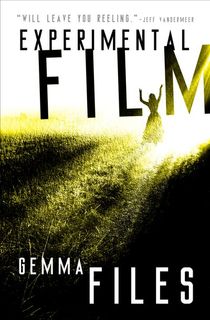
Experimental Film
This Canadian horror author first gained recognition through short fiction. In 1999, her short story “The Emperor's Old Bones” won the International Horror Guild Award for Best Short Story. If you’ve seen the television horror anthology series The Hunger, you may know that five of Files’s short works were adapted for it. She has also gained significant notoriety for her film criticism, especially in relation to horror cinema.
Related: Gemma Files: Where to Begin with the Shirley Jackson Award-Winning Author of Horror and Dark Fantasy
Her 2015 novel, Experimental Film, was the recipient of the Shirley Jackson Award for Best Novel, as well as the winner of the Sunburst Award for Best Canadian Speculative Fiction Novel. This book centers on former film teacher Lois Cairns. Lois isn’t having an easy time making ends meet, raising an autistic son while freelancing as a film critic. But when she discovers the early work of spiritualist Iris Dunlopp Whitcomb at a screening, the silent footage might change everything. She sets out to prove this woman—who disappeared mysteriously back in 1918—was the first female filmmaker in Canada. But parallels begin to emerge between her and the vanished Mrs. Whitcomb—parallels that lead to the emergence of a demon demanding a price be paid.
2. Richie Tankerlsey Cusick
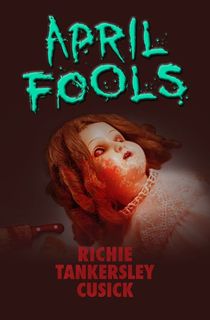
April Fools
Since her first novel, Evil on the Bayou, was published in 1984, Richie Tankersley Cusick has written upwards of 25 books—including contributions to the Buffy the Vampire Slayer book series. She has written several novels for the Point Horror book series, a collection in the 90s which was most popular with teenage girls.
April Fools, a Point Horror book from 1990, follows a teen named Belinda. After an April Fools’ party, Belinda and her friends are the cause of a terrible accident. Terrified their mistake will result in a murder conviction, they agree to keep the incident under wraps and flee the scene. But Belinda’s conscience isn’t so quiet, and when a mysterious stranger uses a series of cruel pranks to torture her, it’s clear that someone else is in on the girls’ dirty little secret.
3. Samantha Schweblin

Little Eyes
An Argentine Spanish-language author, Schewblin's work has been translated into over 20 languages. Her first novel, Fever Dream, was nominated for the 2017 Man Booker International Prize. In the 2018 translation of Little Eyes, homes across the world have been invaded. Hong Kong, Tel Aviv, Indiana—no place is left untouched. They're everywhere. But who are "they?" Us.
Related: 13 Must-Read Horror Books by Diverse Authors
They're nothing like pets, specters, or robots. They're people as real as you or me. Yet one living in Berlin can freely walk through the home of someone living in Sidney. They could be sharing a meal with your children across the world and you wouldn't even know it. And if you did know if, they are entirely impossible to find.
Two souls connecting can be a beautiful thing. But in a world of too much connection, things get ugly. Fast.
4. Eden Royce

Spook Lights
As a writer from Charleston, South Carolina, Eden Royce has a natural flair for Southern Gothic horror. You’re most likely to see her short fiction in anthologies and print or online magazines, but her debut middle grade novel, Root Magic was just published in January of 2021. She’s received recognition for her talents through a nomination for a Shirley Jackson Award and the bestowment of the Speculative Literature Foundation’s Diverse Worlds grant.
Spook Lights is Royce’s first collection of short stories, bringing 12 tales together to push atmospheric terror to a whole new level. Rich in history, nuance, and metaphor, these stories are of the South through and through. From witchdoctors to sinister shop keeps to the embrace of monsters, these stories across foggy cemeteries and sulfuric marshes are deeply macabre.
5. Lauren Beukes

Broken Monsters
If you haven’t heard of Lauren Beukes, where have you been? The work of this South African writer has been praised by some of the biggest names in fiction—from Stephen King to George R.R. Martin. Though her work has been published in two dozen countries, she’s also made notable contributions to television, film, comics, and journalism. And if you’re someone who wants to dive recklessly into high-concept novels that doesn’t pull any punches, then her work is for you.
In her 2014 novel, Broken Monsters, a serial killer is terrorizing the streets of Detroit. Detective Gabriella Versado is no stranger to death, but she’s never seen bodies quite like this. It starts with a boy. Or half one. The other half belongs to a deer, fused to the victim in some unidentifiable way. Meanwhile, Versado’s daughter strikes up a dangerous online flirtation, a journalist risks everything to get the exclusive scoop on the killer, and a homeless man desperately tries to keep his family safe. And reality seems to crumble as more and more horrifying bodies turn up.
6. Ann Arensberg
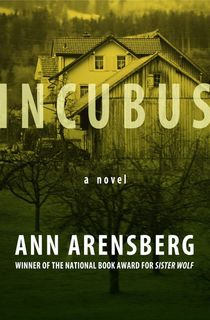
Incubus
Ann Arensberg was born in Pittsburgh in 1937, and started out her career as an editor for Viking Press. Her range as an author is broad, spanning from the romantic comedy of her novel Group Sex to the disturbing supernatural horror of Incubus. Across all her work, the National Book Award-winning author writes on the theme of sexual desire, particularly as it pertains to the female experience of eroticism. It’s certainly a fresh and unique take amidst the near slog of gratuitously sexual situations in the male-dominated corner of the horror genre.
In Incubus, a dark presence has settled over the town of Dry Falls, Maine. Unholy atrocities have begun to take place: the flourishing crops drying up into husks, animals birthing mutated abominations, and all of the men suddenly losing all interest in sex, while the women keep having eerie sexual encounters in the night. But are these erotic dalliances strange dreams, or something far more sinister? The faith-shaken pastor’s wife, Cora Whitman, is right at the center of the unsettling tale.
7. Mo Hayder
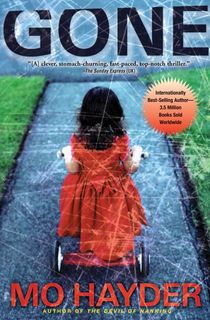
Gone
Mo Hayder is a British writer of dark and twisted thrillers, best known for her Jack Caffery series, which follows a Detective Inspector in the Bristol Major Crime Investigation Unit. The fifth installment in the series, Gone, won her the 2012 Edgar Award. That book follows Caffrey’s investigation into a routine carjacking case as it turns out the car wasn’t the target, but rather the eleven-year-old girl in the backseat—and she’s not the only child who’s gone missing.
Hayder left school at 15 and made a living in odd jobs as a barmaid, a security guard, an English teacher in Asia, and a hostess at a Tokyo club. Along the way she became a flim-maker, and got her MA in film from The American University in Washington DC, as well as an MA in creative writing from Bath Spa University UK. Her path in life has clearly treated her well, as the Times refers to her sophomore novel The Treatment as one of “the top ten most scary thrillers ever written.”
If you’re looking for an author to get your heart pounding and your stomach churning, Mo Hayder is the place to start.
8. Kathe Koja

The Cipher
Kathe Koja has a love of writing stories about people given the opportunity to become more than what they are. This theme of transcendence is especially prevalent in her earlier works, from her first novel The Cipher through her 1996 novel Kink. She’s a prolific writer of short stories, and has a notable collection of Young Adult fiction under her belt, but it’s her adult horror/speculative fiction novels that really get under your skin.
The Cipher won both the Bram Stoker Award for Best First Horror Novel and the Locus Award for Best First Novel. The gritty story centers around young aspiring poet Nicholas and his lover, Nakota. Upon discovering a strange, dark hole—something somehow both intangibly ethereal and viscerally sentient—in the storage room floor, the two of them begin to lose control of their lives, spiraling down a path of obsession, violence, and transformation.
9. Ania Ahlborn

Brother
Polish-born author Ania Ahlborn clawed her own way into the horror scene with her first novel Seed, which she self-published in 2012. Seed quickly became the number one bestselling horror novel on Amazon, leading the company to option the movie rights for the work. Since then, Ahlborn has published 9 more chilling novels and novellas, including the horrifying Appalachian tale Brother.
Brother follows the gruesomely dysfunctional Morrow family and their cruel and violent “traditions.” They’ve fallen on hard times, but they find ways to keep their spirits up—and it helps that no cops turn to them when girls start disappearing off the side of the road, and they’re too deep in the mountains for anyone to hear any screams. It’s all running smoothly and routinely, until 19-year-old Michael becomes smitten with a pretty girl in the next town over, and starts to question how well he fits in with the ways of his family. Luckily his older brother Rebel is there to keep him in line…
Though one of Ahlborn’s earliest memories is of her sneaking through a chainlink fence to swan around the old cemetery by her house, she claims the dark fiction she splashes across the page doesn’t extend to her own personal life. In fact, she cites her overly cautious brain as inspiration, with horrors spawning from her subconscious conjuring of worst-case scenarios.
10. Alma Katsu

Alma Katsu
Alma Katsu certainly has an intriguing background. Born in Alaska but raised in Massachusetts, Katsu has worked for three decades for the US federal government, flourishing in several positions dealing with intelligence, foreign policy, and technology. In her writing, Katsu melds the historical with the supernatural, delivering vivid stories which feel so deeply rooted in possibility that the terrors sink deep in the reader’s psyche.
Her most well-known works include those in the Taker Trilogy, following a woman whose gift of immortality starts to feel like a Faustian punishment after the sins of her past start to catch up with her. The Hunger, published in 2018, is described by the Master of Horror Stephen King as being, “deeply, deeply disturbing.” The novel follows the historically notorious Donner Party, threatening the travelers on the ill-fated journey with an evil that may go beyond the madness of human desperation.
Her newest novel, The Deep, is set to be released on March 10th, and centers around a haunting story amidst the historical disasters of the Titanic and its sister ship the Britannic.
11. Mariko Koike

Mariko Koike
Japanese novelist Mariko Koike is lauded for her thrilling detective fiction and blood-curdling horror works. She started out writing essay collections and short stories before she turned to novels, winning the Mystery Writers of Japan Award for Short Stories in 1989 for “My Wife’s Girlfriends.” Though she thrives writing elements of terror and suspense, she also has a passion for love stories, making many of her works genre-bending masterpieces.
Her most popular English-translated work is The Graveyard Apartment. A young married couple and their daughter are filled with an idealistic hope for the future as they move into a new apartment building. That optimistic dream soon darkens as a claustrophobic and isolated story of terror unfolds, and one by one their neighbors flee as strange occurrences haunt the building. Something is lurking in the basement—something as dark as the family’s past.
12. Jac Jemc

Jac Jemc
Jac Jemc is a captivating new voice in the horror genre. With every piece she writes, she treads new personal ground, never revisiting old concepts and keeping her stories fresh with a broad scope of the terrifying and disturbing. Her short story collection False Bingo consists of twenty stories spanning alternate universes, fears come to life, and vicious revenge.
Her 2017 novel the Grip of It delivers a cerebral and and suspenseful haunted house story. A couple—Julie and James—in the midst of relationship woes move into a new home which escalates their troubles beyond imagination. While readers are grounded in reality by the very real emotional navigation of the main characters, a slow creeping and steady dread is woven around the relatability. The house the couple has inhabited has its own dark agenda—terrorizing Julie and James with eerily mysterious and grating noises, a claustrophobic and changing architecture, and stains on the walls which seem to map over Julie’s skin in bruising patterns.
13. Daphne du Maurier (pictured above)

Rebecca
Born in London in 1907, Daphne du Maurier was the daughter of the prominent actor-manager Sir Gerald du Maurier and actress Muriel Beaumont. She grew up among creative types, and her blooming passion for literature and writing was nurtured by family and friends. As her career grew, she was categorized as a “romantic novelist,” though today she fits best among the Gothic writers. du Maurier found success on the big screen as well: many of her novels were adapted for film including Jamaica Inn (1939), Frenchman’s Creek (1944), Hungry Hill (1947), My Cousin Rachel (1952), and of course, Rebecca (1940). Hitchcock’s The Birds (1963) was based on a treatment of one of du Maurier’s short stories, as was as the film Don’t Look Now (1973). The Doll is one of 13 of du Maurier’s “lost” stories, described as, “gothic, suspenseful, and macabre.” She wrote it when she was only 21.
14. Silvina Ocampo

Thus Were Their Faces: Selected Stories
Born in Buenos Aires in 1903, Silvina Ocampo’s writing career began with Viaje Olvidado (1937) and continued to flourish with three books of poetry, novels, and a shot at playwriting as well. Ocampo fell into the shadow of her good friend Jorge Luis Borges, the acclaimed Argentinian writer, and her eldest sister who was the founding editor of the journal, Sur. When Ocampo’s work started gaining traction in the literary world, it often fell into the category of the fantastic and surreal, focusing on ideas such as space and time, children, and metamorphosis. Her style often veered into the unusually cruel, which at the time, was not well-received by critics. In fact, in 1979, Ocampo was denied the Argentinian prize for literature on the basis that her work was “far too cruel.”
15. Sylvia Townsend Warner

Lolly Willowes
Unmarried and unassuming, Laura Willowes seeks an outlet beyond the uptight London streets. After fleeing her brother’s home in an act of rebellion and clarity, Willowes finds her place in a village of witches. Such is the premise of the 1926 novel Lolly Willowes by Sylvia Townsend Warner. The well-received book traipses through haunting scenes with Satanic undertones, and it bends and challenges societal norms. Unfortunately, however, many missed the truly contemporary and modern thought lying hidden between the lines. In one thank you note to friend and fellow author David Garnett, Townsend Warner wrote, “Other people who have seen Lolly have told me that it was charming, that it was distinguished, and my mother said it was almost as good as Galsworthy. And my heart sank lower and lower; I felt as though I had tried to make a sword, only to be told what a pretty pattern there was on the blade.” Townsend Warner went on to write a number of short stories and other novels during her literary career including, Summer Will Show (1936) and The Cat’s Cradle Book (1940).
16. Ann Radcliffe
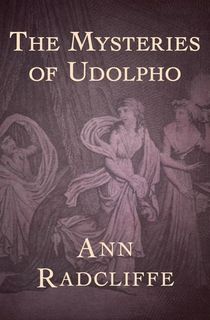
The Mysteries of Udolpho
Though she is considered one of the founders of Gothic literature, very little is known about Ann Radcliffe’s personal life. Author Christina Rossetti attempted to write a biography about Radcliffe, only to abandon the project due to lack of information. Her literary life, however, consists of six novels, a book of poetry, and some non-fiction. She set the tone of her writing style with The Romance of the Forest (1791) and inspired Gothic writers with The Mysteries of Udolpho (1794). Sir Walter Scott, Edgar Allan Poe, and Jane Austen have all pulled from the “Radcliffe School” in their work, and she’s even been credited with influencing the writing of Fyodor Dostoevsky. “I used to spend the long winter hours before bed listening (for I could not yet read), agape with ecstasy and terror, as my parents read aloud to me from the novels of Ann Radcliffe. Then I would rave deliriously about them in my sleep,” Dostoevsky wrote. Radcliffe was a proponent of terror over horror, stating that terror aims to stimulate readers through imagination and perceived evils, while horror closes them off through fear and physical dangers.
17. Shirley Jackson

The Lottery and Other Stories
Best known for her short story The Lottery (1948), Shirley Jackson has been credited with influencing such writers as Neil Gaiman, Stephen King, Nigel Kneale, and Richard Matheson. Throughout Jackson’s career, she faced reactions from fans that her male counterparts may never have encountered. Many insisted that the darker aspects of her work were a product of “personal, even neurotic, fantasies.” Jackson preferred to allow her books to speak for themselves, veering away from the spotlight as often as she could. She was quoted as saying how pleased she was that the Union of South Africa banned The Lottery because: “she felt that they, at least, understood the story.” Her succession of Gothic novels began in 1951 with the publication of Hangsaman, and, in 1959, when The Haunting of Hill House was published, it became regarded as the “quintessential haunted house tale.”
18. Marjorie Bowen

Black Magic: The Rise and Fall of the Antichrist and Other Works
British supernatural horror writer Marjorie Bowen was born in 1885. She produced more than 150 volumes of work, though they may be difficult to come by, as much of what was published appeared under pseudonyms. Joseph Shearing, George Preedy, Robert Paye, John Winch, and Margaret Campbell were the bylines of Bowen’s original works. She wrote mystery novels inspired by true crimes. The books that saw the most commercial success fell under the pseudonym Joseph Shearing. It wasn’t until the late 1940s that the general public came to know the true author of these haunting tales. She has been described as “one of the great supernatural writers of this century” and “one of the best of our modern novelists.”
19. Tananarive Due

My Soul to Keep
Tananarive Due has been terrifying her readers for over 20 years, from her African Immortals series to standalone horror novels like The Good House. Although some of Due’s novels land more in the speculative/fantasy genre than horror, each entry offers something particularly horrifying. In My Soul to Keep, the first book in the African Immortals series, Jessica discovers a major secret after her marriage to David. Namely, that he’s part of an Ethiopian sect that traded their humanity for immortality—and now the group that gave them immortality is calling him back to Ethiopia. Jessica, David, and their child battle for their lives amongst terrifying creatures and strange characters.
20. Elizabeth Hand
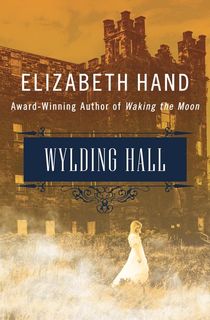
Wylding Hall
Waking the Moon has become a cult classic over the years thanks to its specific and engrossing take on Gothic fantasy. Her fantasy-tinged horror has thrilled readers over the years. Wylding Hall is the most straightforward horror offering from Hand, and it’s sure to satisfy. When the lead singer of a band goes missing during a recording session in a crumbling castle, the other bandmates are left confused and terrified. Years later, they come together once more to try to find Julian.
21. Carmen Maria Machado

Her Body and Other Parties
Carmen Maria Machado’s only written short stories so far, but what we’ve seen has left us deeply impressed. 2017’s Her Body and Other Parties gained a lot of internet buzz. But these stories aren’t just the next trendy collection. From body horror to dystopian plagues, Her Body and Other Parties has it all. The strange, sexy, and spooky stories will leave you haunted. We’ll be waiting, not so patiently, for Machado’s next work.
22. Mary Shelley
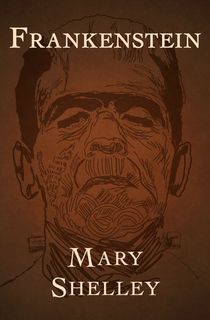
Frankenstein
Mary Shelley was just a teenager when she wrote Frankenstein, one of the most enduring horror stories of all time. By 1816, the young woman had already experienced her share of tragedy. Shelley’s mother died in childbirth and Shelley herself had lost a prematurely born daughter. Her experience with birth and death is said to have influenced the twisted story of unnatural life in Frankenstein. However, Shelley herself said that the inspiration for the scientist who stitched together human body parts and brought his creation to life came to her in a vivid nightmare one rainy summer in Geneva, Switzerland. Though Mary Shelley’s name is instantly recognizable today for her major contribution to Gothic literature, for the majority of her writing career she was overshadowed by her husband, the poet Percy Bysshe Shelley. Mary Shelley’s career was also plagued by the suggestion that Percy was the real author of Frankenstein, and that she had simply taken credit for his work. However, in recent years Mary Shelley’s literary output has been studied more closely, finally putting to rest any doubts about her talent as a writer.
23. Sarah Rayne
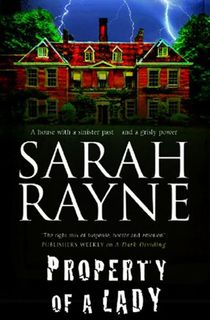
Property of a Lady
Sarah Rayne is known for her inventive paranormal stories and plots that twist and turn until the very last page. The author of over 25 books, Rayne considers herself a history buff and lover of old houses, which certainly shines through in her Michael Flint series. Property of a Lady is the first of six books featuring the Oxford professor. This particularly chilling ghost story takes place in Shropshire, England, where Michael has agreed to look after Charect House, a centuries-old manor that his American friends have inherited. As Michael unravels the house’s disturbing past through the discovery of long-hidden documents and diary entries, inexplicable events plague him and the people he’s closest to, from sightings of a strange woman in the house to two young girls an ocean apart experiencing the same recurring dream. Publishers Weekly lauded Rayne for her ability to “turn the picked-over bones of the haunted house story into something fresh and frequently terrifying.”
24. Diane Hoh
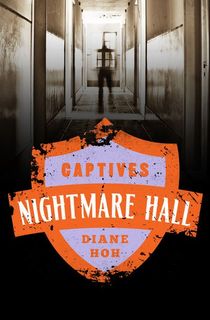
Captives
We credit this bestselling author of young adult horror with fueling our nightmares. Diane Hoh’s Nightmare Hall series consists of twenty-nine terrifying books revolving around the spooky experiences of college students. Captives is the scariest of the bunch. Four students seek shelter from a violent storm in an off-campus dorm. After barricading themselves in, they discover there’s a psychopath lying in wait, hunting them down one by one. Hoh also contributed to the Point Horror series and the anthology collection 13 Tales of Horror by 13 Masters of Horror.
25. Joyce Carol Oates
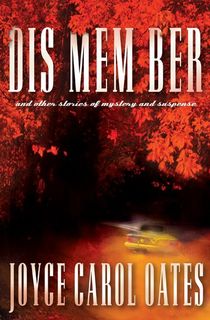
Dis Mem Ber
Joyce Carol Oates began her literary career when she was fresh out of college and hasn’t looked back since. Now a professor of creative writing at Princeton University, Oates has dabbled in many genres over her long writing career, but she’s particularly excelled in psychological terror. Oates was recognized for her superior achievement by the Horror Writers Association when she took home the Bram Stoker Award in 1996, 2012, and 2013. She is a famously prolific writer, having published more than 50 novels and 30 collections of short stories. If you’re considering diving into Oates’ work for the first time but find the vast options intimidating, allow us to help out: Begin with this collection of short stories exploring the fear experienced by vulnerable women and girls. Oates’ powerful and incisive social commentary about our deepest fears makes Dis Mem Ber a chilling and thought-provoking read.
Featured photo: Alchetron















